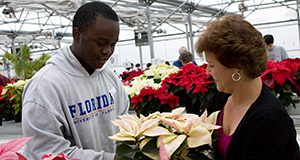Abstract
Over 70 million adults born between 1981 and 1996 make up the generation of adults referred to as millennials, the fastest-growing group making up the present-day workforce, with 56 million currently employed or looking for work. One in three individuals in the workplace is a millennial. Because millennials make up such a large portion of the workforce, it is imperative that employers better understand them and understand how to engage them. This 2-page fact sheet written by Lauren Headrick Sweeney, Matthew Benge, and Hannah Carter and published by the UF/IFAS Agricultural Education and Communication Department discusses offers some strategies.
http://edis.ifas.ufl.edu/wc329
References
Fry, R. (2018). Millennials are the largest generation in the U.S. labor force. Pew Research Center. Retrieved from http://www.pewresearch.org/fact-tank/2018/04/11/millennials-largest-generation-us-labor-force/
Gallup. (2016). How Millennials Want to Work and Live. https://www.gallup.com/workplace/238073/millennials-work-live.aspx
Holmberg-Wright, K., Hribar, T., Tsegai, J. (2017). More Than Money: Business Strategies to Engage Millennials. Business Education Innovation Journal, 9(2), 14-23. http://www.beijournal.com/images/2_V9N2_final_2-2.pdf
Unless otherwise specified, articles published in the EDIS journal after January 1, 2024 are licensed under a Creative Commons Attribution-NonCommercial-NoDerivs 4.0 International (CC BY-NC-ND 4.0) license.

